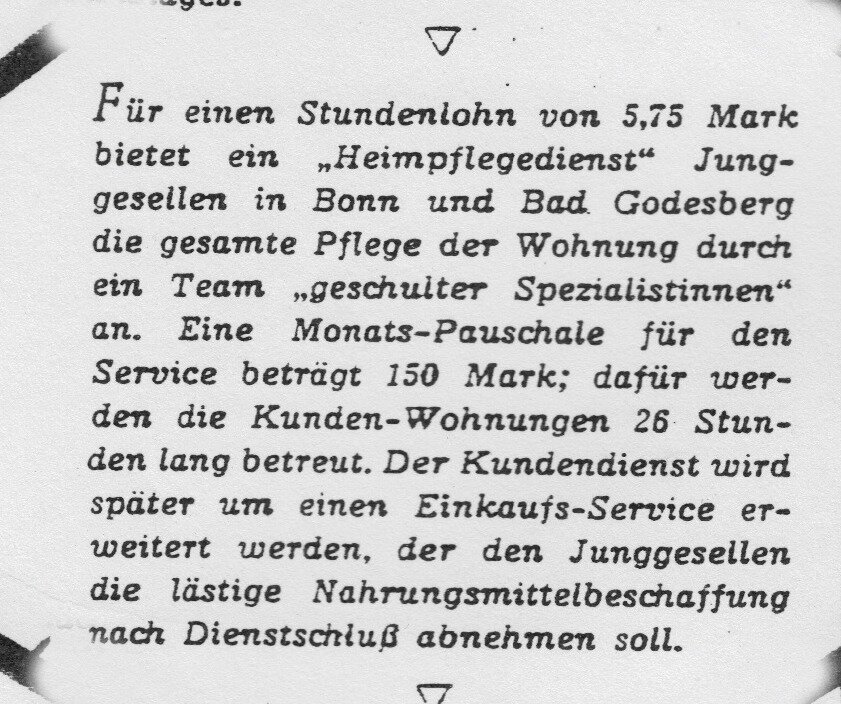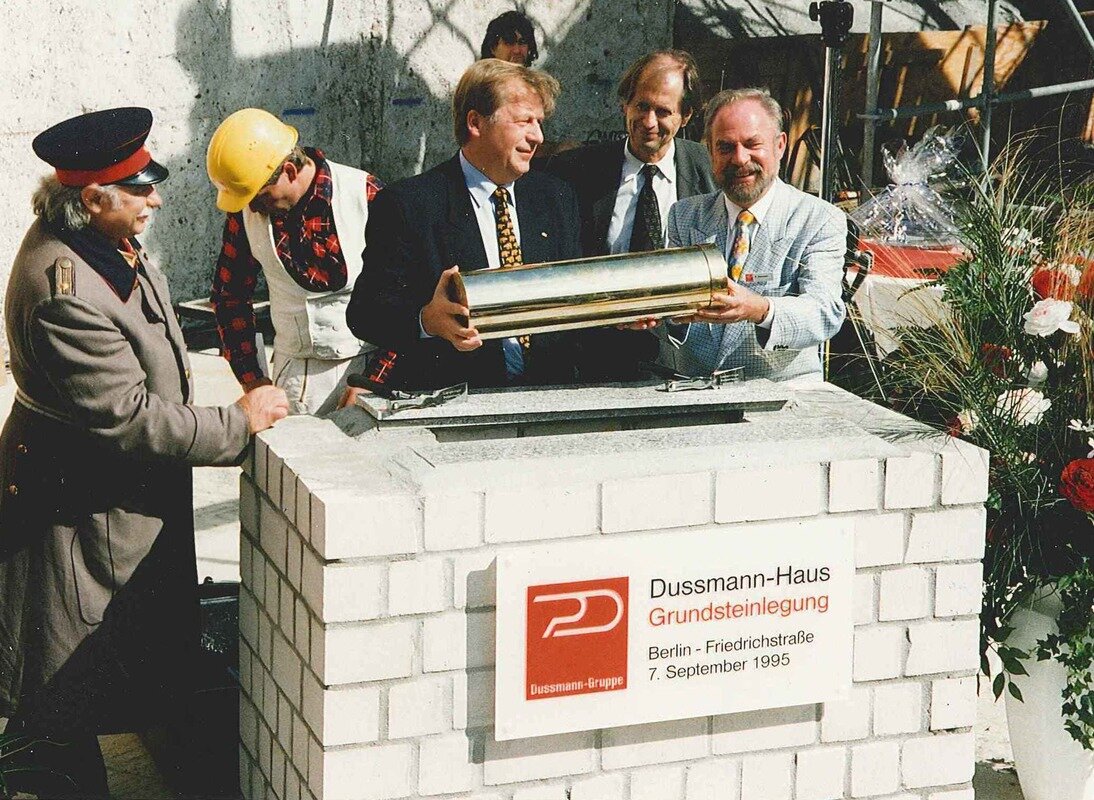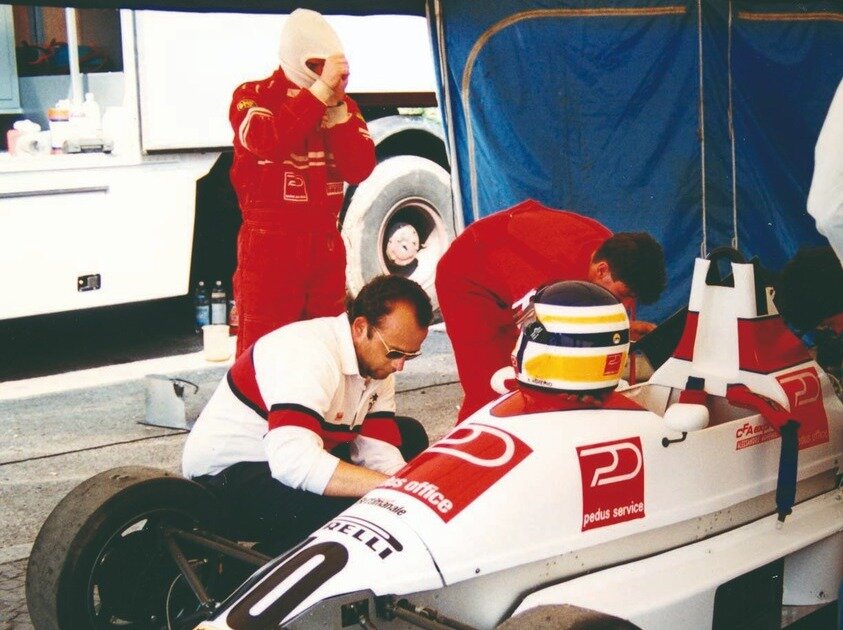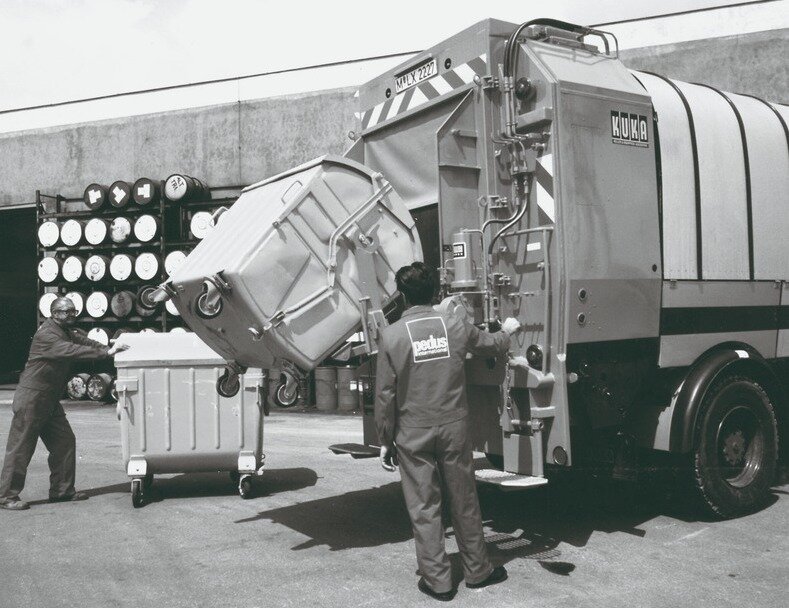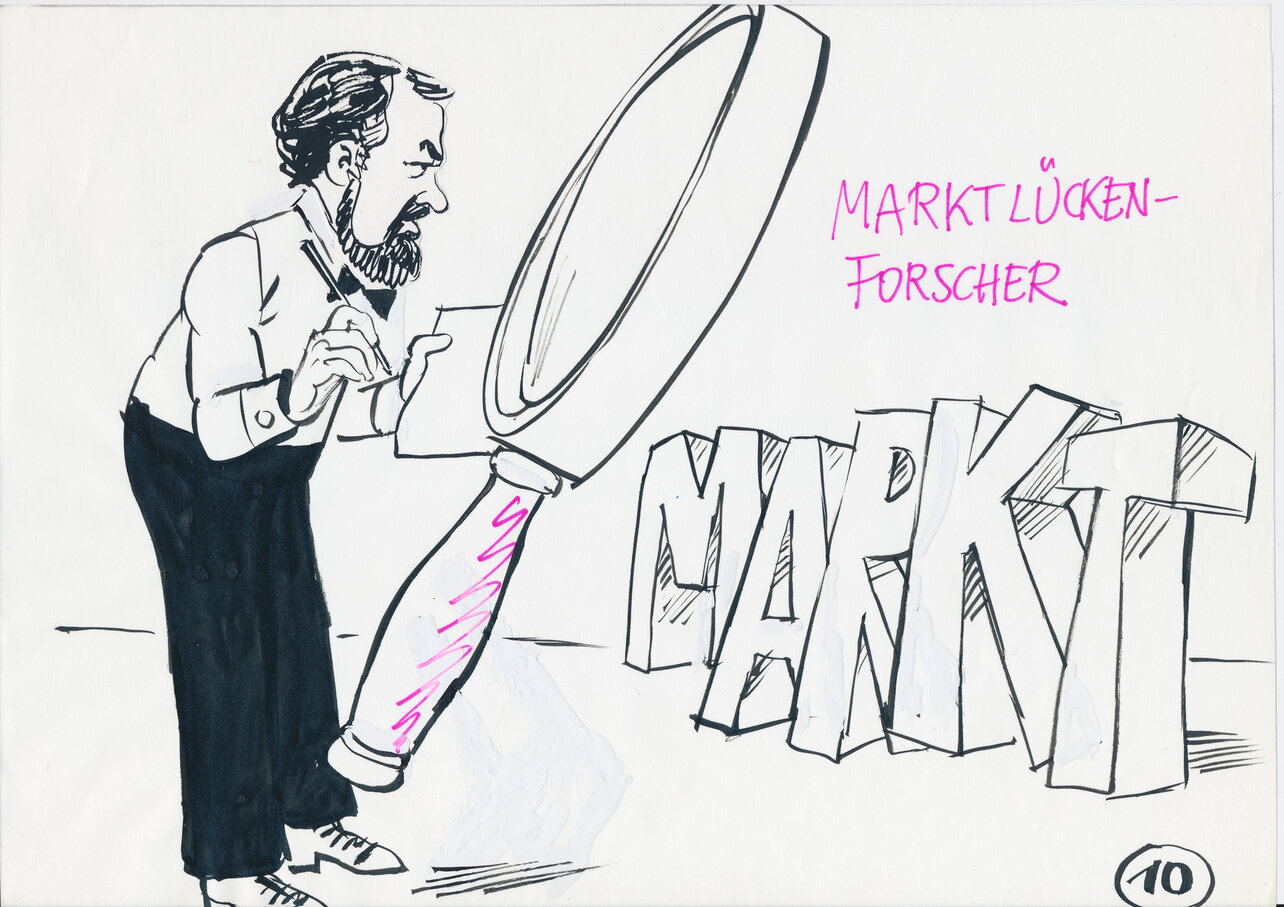The Dussmann Group is 50
15.05.2013 — From a start-up enterprise in Munich to a global player – services for people, by people
The Entrepreneurial Idea
On May 30, 1963, a man takes out a credit of 2,000 Marks and sets up a company in Munich on the basis of a good idea: Peter Dussmann is 24 years old. A few weeks previously, he read in a newspaper that someone was offering services in Rhineland to keep bachelor apartments clean and tidy. Why shouldn’t that work in Munich? At the time, the city is the singles capital of Germany and his place of residence. From then on, his small enterprise cleans apartments, waters flowers and does the laundry. For a few weeks, Peter Dussmann himself is the company’s only employee but then he starts to employ Munich housewives who are happy to earn a little extra.
New Ideas and a Steady Eye on Clients’ Needs
50 years later a leading international multi-service provider has grown from this simple idea. The consistent development of the Dussmann Group starts in the initial months of the newly founded enterprise. Peter Dussmann’s early independence, his assertiveness and his staying power have always been decisive for the success of the company. He examines the market in detail and identifies market gaps. The rigid constraints rules of the cleaning trade don’t make it any easier. Sales and market are part of his strategy very early on; he places advertisement. In 1965, Peter Dussmann wins his first contract with a company. The bachelors’ payment record is not exemplary and he wants to build something bigger. One by one, he is takes on new contracts for cleaning operations in university buildings, in a central market and in other businesses in Munich. Peter Dussmann makes consistent investment in equipment and cleaning machines. A contemporary remembers: “When others were still cleaning by hand, he already had a machine for the task” Every team member was allocated a specific task and modern technology was provided to do it. Not much later, in 1968, the first contracts with hospitals are signed and Peter Dussmann’s company, Pedus, swiftly acquires the necessary knowledge and skills to become a specialist in hospital cleaning and hygiene.
Peter Dussmann always orients the expansion of the product portfolio on his clients: what do they need? What sort of innovation and ideas does our society require today and in the future to ensure that people can live safely, in hygienic conditions and eat varied, healthy meals?
First Steps Abroad
In the same year, he expands abroad to Austria. A year later, it is Italy. The will to grow and the need to spread risk provides the motivation to challenge local competition in these new markets. In 1976, Saudi Arabia is added, then Brazil and in 1978, the USA, Luxemburg and other promising countries. Operations in Luxembourg are rapidly successful and remain so: today, one in every 200 citizens of the Grand Duchy is an employee of the Dussmann Group.
In Saudi and in Brazil, Peter Dussmann tries out an idea that he later introduces to the Germany market in 1978. Today, this is still one of the most important unique characteristics of the Dussmann Group: he offers the whole range of facility services from one source in self-delivery: catering, housekeeping and security. Initially Pedus Service continues to concentrate its efforts on hospitals but in 1982, the company also starts to operate staff restaurants too.
A Touch More Service – and Responsibility
1984, the company diversifies in a whole new direction, but the service approach remains. In Munich, the first Pedus Office is opened offering completely equipped offices with offices services in first class locations. This is an idea that Peter Dussmann has brought from the USA where his company is enjoying huge success and is counted among the fastest growing enterprises listed by “Inc 500”.
In 1985, his house bank asks Peter Dussmann if he would consider buying six residences for the elderly. The previous owner is facing insolvency. Dussmann has already been providing services to nursing and care facilities for some time and so he is not unfamiliar with the sector. Nursing and care of the elderly are now added to the service portfolio under the brand name of Kursana. Today the company operates 116 facilities in Germany, Austria, Italy, Switzerland and Estonia.
In 1988, the Dussmann Group celebrates its 25th jubilee. 22,000 employees generate aggregate sales of half a million DM. 25 years later, sales are almost seven times that amount.
Growing Phase After the Fall of the Borders
“The biggest moment in our history” is how Catherine von Fürstenberg-Dussmann, describes the fall of the wall in 1989. Peter Dussmann visits the new federal states very soon after and forges contacts with state-owned service companies. He has no reservations; he founds one of the first GmbH enterprises in the GDR and by February 1990, the first East-Berliners start work. The Dussmann Group is one of the first companies to create thousands of jobs in Eastern Germany. From here, the multi-service provider puts out feelers to Eastern Europe. One after the other, from 1991 to 1997, international subsidiaries are established in Hungary, in what is today the Czech Republic, in Poland, Bulgaria, Russia and Romania. Simultaneously, the promising Asian markets are analyzed and soon entered.
Putting Down New Roots in Berlin
In the middle of the 90s, Peter Dussmann bids farewell to Munich. Not only the headquarters in the Pilotystrasse but also the city itself has become too small for the wealth of ideas that the entrepreneur has to offer. And he wants to contribute to the beginnings of the new capital. When the city of Munich starts to make trouble about the flag on the headquarters building, Dussmann finalizes his decision to go to Berlin. In 1994 and 1995, the company relocates to the newly built Dussmann House in the Friedrichstrasse. In 1997, when no suitable tenant is found for the lower floors of the new building, Peter Dussmann goes back to his family’s roots in bookselling and opens Dussmann das KulturKaufhaus. The media department store offers the entire range of media products and applies the service approach to the retail sector. Peter Dussmann takes up the cause for longer opening hours and Sunday shopping – and wins; when, in 2006, shop opening hours are liberalized, it is a victory for Peter Dussmann. The KulturKaufhaus throws a party on the first day it is allowed to open until midnight.
New Ideas
In autumn 2008 Peter Dussmann suffers a stroke. His wife, Catherine von Fürstenberg-Dussmann takes on the management of the company. In December 2010, the company becomes a foundation and Catherine von Fürstenberg-Dussmann assumes the chair of the board of trustees. She manages the company together with the executive board according to her husband’s principles. But she contributes her own ideas too and the Dussmann KulturKindergärten is one of these. The division offers in-house child care with long, flexible opening hours, a cultural profile and bilingual care. The vertical garden in Dussmann House on the Friedrichstrasse in Berlin, created by the French garden artist Patrick Blanc, also bears her handwriting as does the Café-Restaurant Ursprung – eat-drink-dream at the foot of the vertical garden. The restaurant and the garden symbolize the social responsibility of the Dussmann Group towards its employees, its clients and the environment.
With over 60,000 employees in 21 countries across the globe the Dussmann Group offers services for people, by people. The largest company division, Dussmann Service, provides facility services from a single source: technical services, catering, security and reception services, cleaning, commercial management and energy management. The second largest company division, Kursana provides nursing and care for 13,600 seniors. Dussmann also operates the KulturKaufhaus in Berlin and Dussmann KulturKindergärten offers in-house company childcare. In 2012, the Dussmann Group posted aggregate sales of 1.73 billion Euros and is one of the largest private multi-service providers worldwide.
